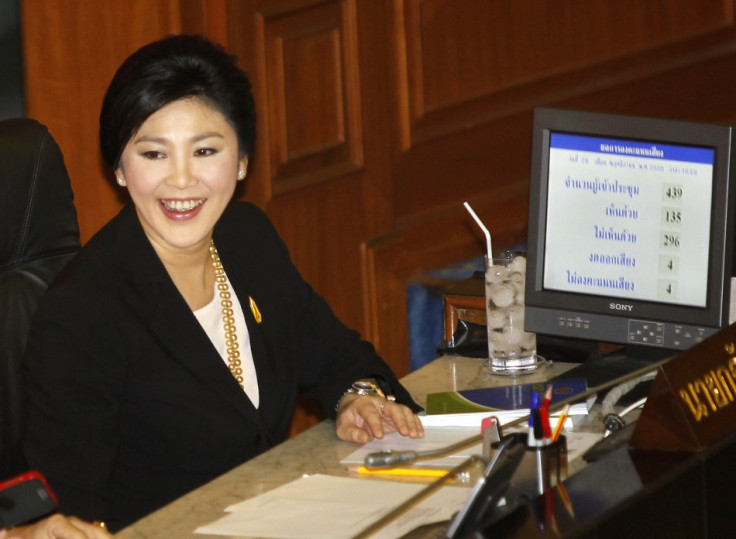Shinawatra Survives No-confidence Vote but Bangkok Protests go on [VIDEO]
Embattled prime minister wins 297-134 in lower house, where her Pheu Thai party has majority

Thai Prime Minister Yingluck Shinawatra has survived a no-confidence motion in parliament, but anti-government protests continued unabated in the capital.
The win in the lower house of parliament came as a relief for the embattled prime minister, but the challenge facing her is tall as the new wave of protests entered their fifth day, successfully paralysing the government and businesses.
Shinawatra won 297 votes in the lower house where her Pheu Thai party holds a majority, while the motion brought by the opposition Democrat Party won 134 votes.
The anti-government protests, the largest in three years, were triggered by a controversial political amnesty bill that might have helped the prime minister's brother, Thaksin Shinawatra to end his self-imposed exile and return to the country.
The protesters, led by former deputy prime minister Suthep Thaugsuban, want Shinawatra to step down as they say she is running a shadow government on behalf of Thaksin, who himself served as prime minister before being ousted in a 2006 military coup.
Thaugsuban told the Bangkok Post: "We won't stop even if Yingluck Shinawatra resigns or the House is dissolved ... Our demonstration will continue until we can get rid of the Thaksin regime."
Thaksin is wanted in the country to stand trial on corruption charges. He fled the country in 2008 to avoid trial, but the billionaire politician's fortunes changed when his party came back to power in 2011 and his sister became the prime minister.
The government is acting with caution in the face of massive popular anger that paralysed the government's core operations for about a week. Hundreds of protesters had earlier forced their way into Thailand's finance ministry, even as thousands marched to various government buildings across Bangkok demanding the end of Shinawatra's regime.
A previous confrontation, between the government's law enforcement forces and anti-government protesters in 2010, left more than 80 civilians dead and about 2,100 injured.
© Copyright IBTimes 2024. All rights reserved.





